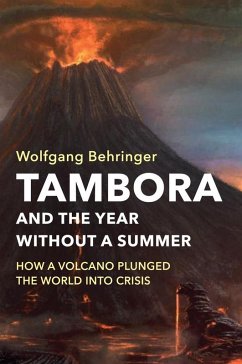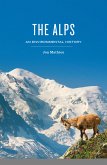Dieser Download kann aus rechtlichen Gründen nur mit Rechnungsadresse in A, B, BG, CY, CZ, D, DK, EW, E, FIN, F, GR, HR, H, IRL, I, LT, L, LR, M, NL, PL, P, R, S, SLO, SK ausgeliefert werden.
Hinweis: Dieser Artikel kann nur an eine deutsche Lieferadresse ausgeliefert werden.
J. Donald Hughes, University of Denver
'Charting Tambora's effects on climate, global politics, the history of science, the world economy and individual lives, this outstanding book makes the history of most places in the world between the years 1815 and 1820 unthinkable without the story of the largest volcanic eruption ever recorded. Fast-paced and intricately constructed, this is climate crisis as page-turner.'
Alan Mikhail, Yale University
'This is a truly remarkable book, a global history ranging from Indonesia to Munich to Tasmania. Behringer shows how a volcano in Tambora touched off a weather crisis that brought famine and political instability in Europe, witch hunting in Africa and even genocidein Australia. He brings the story to life through the voices of contemporaries: Mary Wollstonecraft, Goethe, Constable ... unforgettable.'
Lyndal Roper, University of Oxford "Behringer provides a brilliant illustration of the truly global character of this natural catastrophe and all its ramifications."
Deutsche Presse-Agentur
"By showing how the planet was completely transformed by extreme weather events some 200 years ago, Behringer offers a highly original contribution to current climate debates."
Deutschlandradio Kultur
"The largest volcanic eruption ever recorded took place in Indonesia in April 1815 -- and no region on earth was untouched by its effects. This comprehensive account of the impact of one of the greatest environmental disasters in human history offers a case study for how societies and individuals respond to climate change, what risks emerge and how they might be overcome."
Climate & Capitalism









